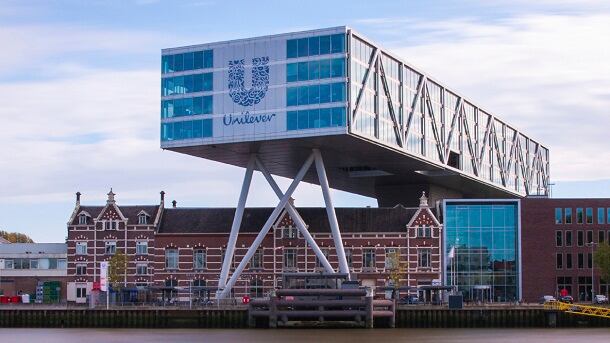Food businesses with ‘diverse and inclusive’ workplaces are more productive and profitable and have a higher level of employee engagement, according to IGD, an education and training charity for the food and grocery industry.
Its new report into diversity and inclusion (D&I) in the food and grocery industry claims the business case for diversity and inclusion has ‘never been clearer’.
Initiatives that aim to nurture female talent and create a diverse workforce in terms age, ethnicity, sexuality, social mobility and disability can ‘help businesses unlock new sources of talent for the future’, the report stated.
Jon Terry, People and Organisation Consulting Partner at PwC UK, which partnered the report, said the case for D&I was particularly strong in the food industry ‘where the customer reigns supreme’. “Amidst tightening margins and intensifying competition, diversity and inclusion can help businesses to get closer to customers, tap into under-served markets and keep one step ahead of fast-shifting consumer demand,” he said.
Key findings
The median gender pay gap within the food and grocery industry was lower than the UK economy as a whole (6.8% versus 9.6%), according to the analysis. However, fewer than 10% of companies surveyed were prepared for ethnicity pay gap reporting, which IGD believes is likely to be introduced.
Women also lagged slightly in leadership roles. An average of 27.6% of Board roles are occupied by women, compared to 32.4% across FTSE 100 companies. This is unlikely to reach the Hampton-Alexander target of 33% women by the end of 2020, according the report.
At 11.4%, the percentage of Board members in the food and grocery industry from a Black, Asian and minority ethnic background was very close to reflecting the UK working age population at large (12.5%).
Susan Barratt, CEO of IGD, said: “The progress that has been made in gender equality and the wide range of initiatives already in place to nurture female talent is particularly encouraging. But there are other levers of diversity beyond gender that can also help to create a diverse workforce – age, ethnicity, LGBTQ, social mobility and disability, amongst others.”
Elliott Goldstein, Managing Partner, The MBS Group, which also partnered the survey, said: “Food and grocery is very much a data-led sector. It is our hope and belief that by providing our sector with a snapshot of diversity today, the findings will enable organisations to benchmark themselves against their peer group, and adjacent sectors/industries, and to act as a catalyst to change and development. The food and grocery industry can be proud of the progress is has made to date changing the dial in diversity – but with just 22.2% of Executive Committee members being women, it is clear that as a sector there is still some way to go.”
3 reasons why D&I is important for food businesses
The report gave three reasons why D&I was business critical. First, it allows businesses to get closer to customers. Food is something “that touches almost everyone’s lives and in which success is all about understanding customers’ tastes and delivering a compelling experience,” it said. Meanwhile, customers’ expectations are constantly shifting and becoming more complex. To illustrate, the report highlighted the increase in plant-based diets, the demands for curbs on plastic packaging and the growing popularity of discount supermarkets among AB consumers.
Boosting diversity and inclusion was therefore “an opportunity to truly connect with your customers by creating a workforce, leadership and culture that reflects and better understands the people you serve in all their diversity. Diversity and inclusion can also help bring in people with fresh ideas and experiences and foster a culture that enables innovation to thrive.”
Second, it can boost a company’s market share. For example, three quarters of disabled people and their families have left a shop because of poor customer service, IGD noted. With one in five consumers in the UK having a disability, it asked, could your business afford to lose this custom? It added that businesses could potentially boost market share by stepping up the focus on inclusion in “product development, customer engagement and sales strategies”.
Third, businesses are increasingly in the spotlight over D&I, the analysis believed. “In the same way that consumers are gravitating towards environmentally sustainable businesses, many want to spend their money with diverse and inclusive companies.”
In turn, people want to work for diverse organisations. A PwC survey of more than 4,000 people from around the world found that over 60% of women looked at the diversity of the leadership team when deciding to accept a position with their most recent employer, as did almost half of men.
Criticisms of diversity and inclusion
Critics of diversity and inclusion programmes in the workplace claim they can be counterproductive and ultimately foster division by labelling people into different categories.
Rachel Baldwin, Vice President Human Resources at UK meat producer Tulip said the focus of the company’s D&I strategy lay in attracting the widest pool of talent into its ranks.
“I want to make sure we have the best person in each role and provide the right environment and support for them to work at the best to their ability,” she said. “I don’t support positive discrimination; I wouldn’t want to be hired just because I’m a woman. Instead of using quotas, we give opportunities to the individual who can rise to the challenge – regardless of gender or anything else. Ticking boxes is not the right thing for us, and we always look at inclusion over diversity.”
She added: “I’m not a huge fan of D&I labels - it should just be the way we do business. We have to ask ourselves: are we supporting everyone to develop and progress? Are we promoting ourselves in the right way externally? Are we attracting as wide a pool of candidates as possible? We will always choose the best people for the job, but we want to know that we have done everything we can to make sure everyone had the equal opportunity.”





